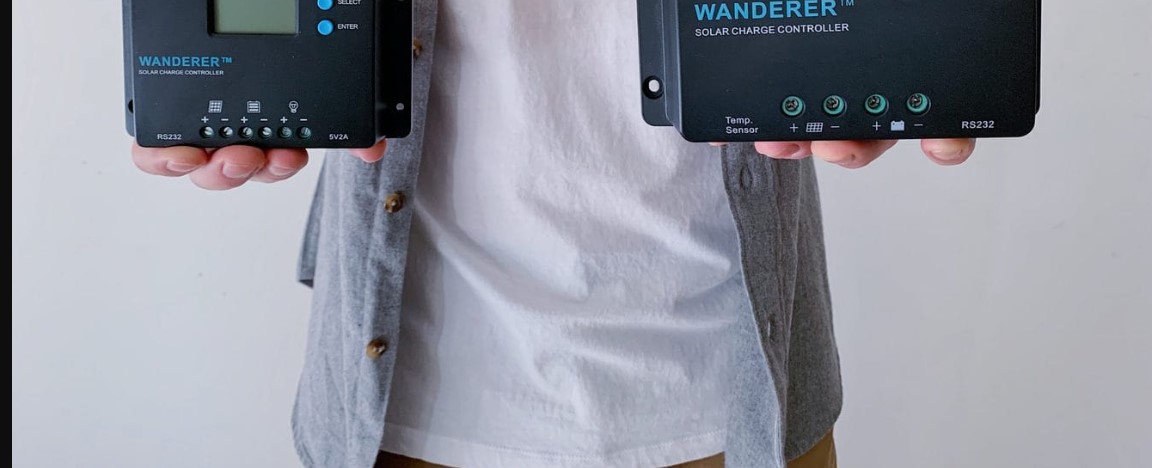Solar Charge Controller Sizing and Selection Guide
June 8, 2024

A solar charge controller is an essential component of any off-grid solar power system, as they regulate the amount of charge that enters and leaves the battery bank. Choosing the right solar charge controller can ensure that your battery bank is properly charged, prolonging its lifespan and improving overall system efficiency. In this guide, we will discuss the factors that determine the appropriate solar charge controller size for your solar power system, as well as tips on how to choose the right one.
Understanding Solar Charge Controllers
A solar charge controller is a device that regulates the voltage and current produced by solar panels to ensure that the solar batteries are charged at a safe and optimal rate. It prevents overcharging, which can lead to battery damage, and undercharging, which can cause a reduced lifespan of the battery bank. A solar charge controller also protects the batteries from overvoltage, overcurrent, and reverse current.
There are two types of solar charge controllers: PWM (pulse width modulation) and MPPT (maximum power point tracking). PWM charge controllers are more affordable and suitable for smaller solar power systems, while MPPT charge controllers are more efficient and suitable for larger solar power systems. MPPT charge controllers can convert excess voltage into additional current, resulting in a higher charging current and faster battery charging times.
Factors Affecting Solar Charge Controller Sizing
There are several factors to consider when sizing a solar charge controller for your solar power system:
Solar Panel Voltage
The voltage of the solar panels determines the maximum input voltage that the solar charge controller can handle. A 12V solar panel requires a 12V solar charge controller, while a 24V solar panel requires a 24V solar charge controller. If you have a solar panel array with multiple voltages, you will need a solar charge controller that can handle multiple voltages.
Battery Voltage
The battery voltage determines the type of solar charge controller you need. A 12V battery requires a 12V solar charge controller, while a 24V battery requires a 24V solar charge controller. If you have a battery bank with multiple voltages, you will need a solar charge controller that can handle multiple voltages.
System Size
The size of your solar power system determines the amperage rating of your solar charge controller. A larger solar power system requires a solar charge controller with a higher amperage rating to handle the additional current. It is recommended to choose a solar charge controller with an amperage rating that is greater than the total current output of your solar panels.
Temperature
The temperature of the environment where the solar charge controller is installed can affect the charging process. Solar charge controllers are rated based on their maximum operating temperature, which is usually between -20°C and 60°C. If your solar power system will be installed in an area with extreme temperatures, you will need a solar charge controller that can handle the conditions.
Also Read: What are the Pros and Cons of Solar Energy?
How to Choose the Right Solar Charge Controller
Choosing the right solar charge controller for your solar power system can be a daunting task. Here are some tips to help you choose the right one:
Determine System Size
Calculate the size of your solar power system, including the number of solar panels, the battery bank size, and the maximum current output. This will help you determine the appropriate solar charge controller size.
Choose the Type of Solar Charge Controller
Decide whether you need a PWM or MPPT solar charge controller based on the size of your solar power system and your budget. MPPT solar charge controllers are more efficient but are also more expensive.
Determine Voltage Compatibility
Ensure that the solar charge controller is compatible with the voltage of your solar panels and battery bank. If you have a solar panel array or battery bank with multiple voltages.
Consider Amperage Rating
Choose a solar charge controller with an amperage rating that is greater than the total current output of your solar panels. This will ensure that the solar charge controller can handle the maximum current output of your solar panels without causing damage to the battery bank.
Check for Additional Features
Some solar charge controllers come with additional features, such as LCD screens, USB ports, and load control. These features can be useful for monitoring your solar power system and controlling the load on your battery bank.
Look for Quality and Warranty
Choose a solar charge controller from a reputable brand that offers a warranty. This will ensure that you are getting a high-quality product that will last for years.
Conclusion
Choosing the right solar charge controller is crucial for the efficient and safe operation of your solar power system. Consider the factors mentioned above when sizing and selecting a solar charge controller for your system. Remember to choose a solar charge controller with a compatible voltage and amperage rating, and look for additional features and a quality warranty. With the right solar charge controller, you can ensure that your battery bank is properly charged and maintain the longevity of your solar power system.